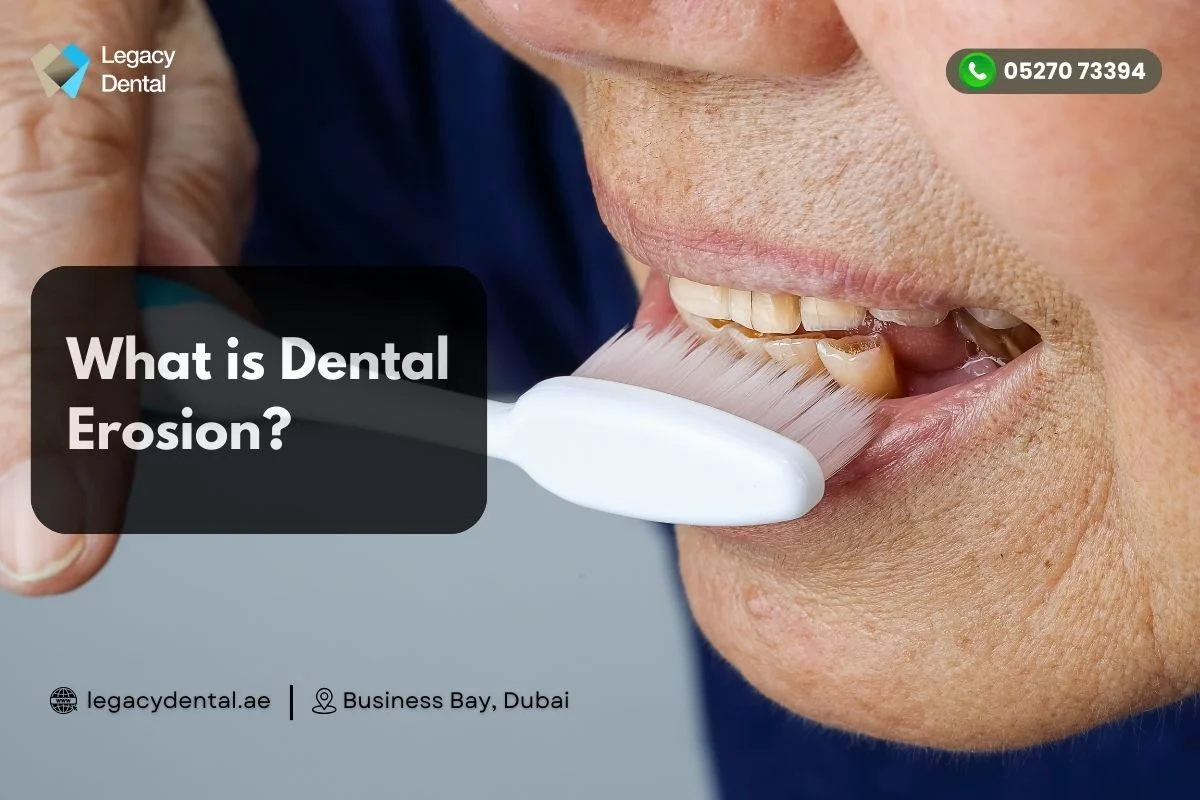Erosion is the loss of tooth enamel caused by acid attack. Enamel is the hard, protective coating of the tooth, which protects the sensitive dentine underneath. When the enamel is worn away, the dentine underneath is exposed, which may lead to pain and sensitivity.
How do I know I have dental erosion?
Erosion usually shows up as hollows in the teeth and a general wearing away of the tooth surface and biting edges. This can expose the dentine underneath, which is a darker, yellower colour than the enamel. Because the dentine is sensitive, your teeth can also be more sensitive to heat and cold, or acidic foods and drinks.
What causes dental erosion?
Every time you eat or drink anything acidic, the enamel on your teeth becomes softer for a short while, and loses some of its mineral content. If this acid attack happens too often, your mouth does not have a chance to repair itself and tiny bits of enamel can be brushed away. Over time, you start to lose the surface of your teeth.
What can I do to prevent dental erosion?
There are a number of things you can do:
- Have acidic food and drinks, and fizzy drinks, sodas and pops, just at mealtimes. This will reduce the number of acid attacks on your teeth.
- Drink quickly, without holding the drink in your mouth or ‘swishing’ it around your mouth. Or use a straw to help drinks go to the back of your mouth and avoid long contact with your teeth.
- Finish a meal with cheese or milk as this will help cancel out the acid.
- Chew sugar-free gum after eating. This will help produce more saliva to help cancel out the acids which form in your mouth after eating.
- Wait for at least one hour after eating or drinking anything acidic before brushing your teeth. This gives your teeth time to build up their mineral content again.
- Brush your teeth last thing at night and at least one other time during the day, with fluoride toothpaste. Use a small-headed brush with medium to soft bristles.
How can it be treated?
Dental erosion does not always need to be treated. With regular check-ups and advice your dental team can prevent the problem getting any worse and the erosion going any further. If a tooth does need treatment, it is important to protect the enamel and the dentine underneath to prevent sensitivity. Usually, simply bonding a filling onto the tooth will be enough to repair it. However, in more severe cases the dentist may need to fit a veneer.

